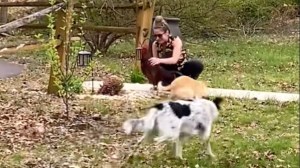A disconcerting episode of After Skool (previously) talks about the seemingly ubiquitous existence of the “Bystander Effect” in the age of social media. This effect posits that individuals are less likely to offer help to a victim while in the presence of others. Modern society takes this one step further in that many individuals will record what is happening, without assisting someone who needs help. Thus the need for Good Samaritan laws.
There is an anomaly called the bystander effect, where individuals are less likely to offer help to a victim when there are other people present; the greater the number of bystanders. …When conflict arises, many people’s first reaction is to whip out their phones and record a tragedy unfold. And these tragedies are uploaded to the web for everyone on earth to see. …Good Samaritan laws were created to encourage people to step up and help someone who is in trouble.
Using whiteboard animation and other illustrations, the video goes on to talk about the origins of the term “Good Samaritan” and our emergent need to become aware of the suffering of others and to embrace kindness towards one another despite whatever differences lie between.
With all the chaos in the news and on social media, We can often feel powerless to affect any change on a macro level. How can your kindness and empathy have any impact on tragic events happening on the other side of the world? And the truth is, it can’t. There is nothing you can do to affect the events you see on your screen. The reality is, we can’t change the world. But…we can change ourselves. We have the power to change who we are, to shape ourselves into a beacon of good, to do the right thing, be mindful, be kind, act on compassion and take the high road.






